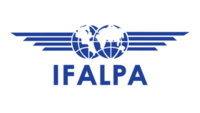
| Newsletter | 2021/12 EN |
 |
Dear Members,what do we make of this crisis? For us on the Executive Board, it is clear that we must seize the opportunities that present themselves to us right now. We want to emerge strengthened from this crisis as a resilient organization that confidently represents the interests of pilots in a time that is characterized more than ever by considerable dynamism. This strengthening includes, among other things, the project of professional recognition, i.e., the classification of our profession at level 6 in the German Qualification Framework.
|
However, in order for these tools to be used successfully and for us as an association to navigate in the volatile environment of the aviation industry, we need an initial determination of our position, a good self-organization and a "growth mindset".
Position determination is the keyword for #VCNextGen and the related workshops that are still to come: As a board, we hope to optimize processes and structures with your support as members. We do not only want to broadcast information, but we also want to receive information and learn about your needs, expectations and perspectives. Therefore, another objective will be the exchange with members in a co-creative dialogue via various communication platforms.
Externally, strengthening the VC requires more presence and an intensification of connections with politics as well as increased cooperation with other associations. External strength of the VC also means: acting instead of reacting. We want to make the knowledge and competence that we have in our committees and working groups more visible externally. For example, we can use our extensive expertise to constructively support the numerous climate protection projects in aviation.
Of course, strengthening the VC also means that we have to be effective at the collective bargaining level. This applies both in the current crisis situation and in a post-pandemic phase: sustainable working conditions, fair competition and future-proof collective agreements must always be the primary goal of our joint efforts.
In a nutshell: The VC needs strengthening internally and externally by the means of a new culture of values, by leveraging synergies to make full use of our resources, by transparent communications internally and externally, by network expansion, by multi-perspectivity and flexibility, and by a continuing willingness to learn on the part of all of us.
VC and E4FC call for monitoring of competition with QatarThis week, the Council of the EU decided to sign the comprehensive air transport agreement between the EU and the State of Qatar. Together with "Europeans for Fair Competition" (E4FC), VC reminds the political actors that the comprehensive fair competition provisions of the agreement must be respected.
|
"The agreement with Qatar is neither in the interest of European employees nor of the European aviation industry," said Maria-Pascaline Murtha, VC Board Member International Relations. "It is therefore all the more important that the EU Commission closely monitors fair competition under this agreement and takes the necessary measures in case of violations. The agreement should also be improved in terms of climate protection. We need binding environmental provisions that correspond to the goals of the European Green Deal."
VC supports BALPA at UK #TravelDayOfAction
Workers in the UK travel industry, including our colleagues from BALPA, campaigned on June 23 in support of their jobs and the preservation of the industry. Among other things, they called for travel to be made easier again under clear scientifically defined criteria, for the extension of short-time work rules to protect livelihoods, and for extended financial support for the industry.
On behalf of our members, VC President Stefan Herth expressed our solidarity via Twitter. For more information on the #TravelDayOfAction, visit the BALPA website.
Options for part-time studyNews in the area of advanced education: Those looking for a course of study alongside flying might be interested in the part-time engineering bachelor's degree in technology management offered by Deggendorf Technical University. The goal of the program is to train specialists for positions connecting technology and management. The degree is a full-fledged engineering title.
|
ULA Mixed Leadership Conference: Mixed Teams as a Success Factor for Change and InnovationThe United Leaders Association (ULA), in which VC is a member organisation, put the topic of mixed teams and their success in relation to artificial intelligence (AI) at the centre of a much-noticed digital conference in early June. Participants discussed with experts from business, associations and politics how mixed teams can position themselves in times of innovation and change with regard to AI, what risks there are in programming and whether mixed leadership can be seen as a leadership task in the application of AI.
|
 |
TCAS RA - Do you really know what to do?Eurocontrol has analysed cases of TCAS RAs over Europe and concludes that 45% were not followed correctly. In many cases the pilots even manoeuvred in the opposite direction. According to IFALPA, "'TCAS RA not followed' [...] is one of the top 5 ATM operational risk priorities."
|
Attention when flying into Nicosia FIR
IFALPA and OPS Group point out possible problems in the airspace of Cyprus. The northern part of the island and corresponding parts of the airspace are claimed by Turkey, which has established the so-called "Ercan Advisory Area" there, which is not in contact with Nicosia Control. This situation has led to several incidents in the past years, so crews flying into the Nicosia FIR should be aware of the situation and potential problems.
IFALPA Briefing Leaflet - ATC Deviation Issues in the Nicosia FIR
New Position Papers on Separation and Fatigue Risk ManagementIFALPA has published 2 new position papers on separation, one deals with Assisted Visual Separation in Visual Approach Procedures, the other with Interval Management, which is meant to ensure a certain spacing in time and distance on approach. In addition, a new position paper on Fatigue Risk Management has been published, which takes up recommendations developed in cooperation with ICAO and IATA.
|
Take our Survey:
Our survey on the topic of Safety II (find more information in the Skybrary) is continuously online. The more of you that take it, the better the results and hence our argumentative basis for flight safety will be. That is why we would like to point out once again that it is still possible to take the survey.
 |
News from Associations, Organisations and Regulators
ICAO - Update on the FR4978 incident
- The ICAO fact finding mission on the Belarus incident has gathered information from several countries. The report is expected to be published at the beginning of the upcoming Council period in mid-September.
An update on the fact-finding investigation into Ryanair flight FR4978
OPS Group - Interception / Single Pilot Ops / Wake Turbulence
- On the occasion of the Belarus incident, OPS Group explains the most important basics in case a military interceptor appears next to your cockpit window:
Intercepted: What You Need To Know - Ops Group is taking a closer look into the topic of single pilot / reduced crew ops due to the latest news on plans by Airbus and Cathay Pacific to temporarily have only one person in the cockpit for cruise flight on long-haul routes:
Any Single Pilots Out There? - Increasing traffic also means an increasing risk of wake turbulence. Therefore, OPS Group has prepared a summary of the problem including an overview of the new categories (A-G) defined a few years ago:
Wake Turbulence: See You On The Flip(ped over) Side
 |








